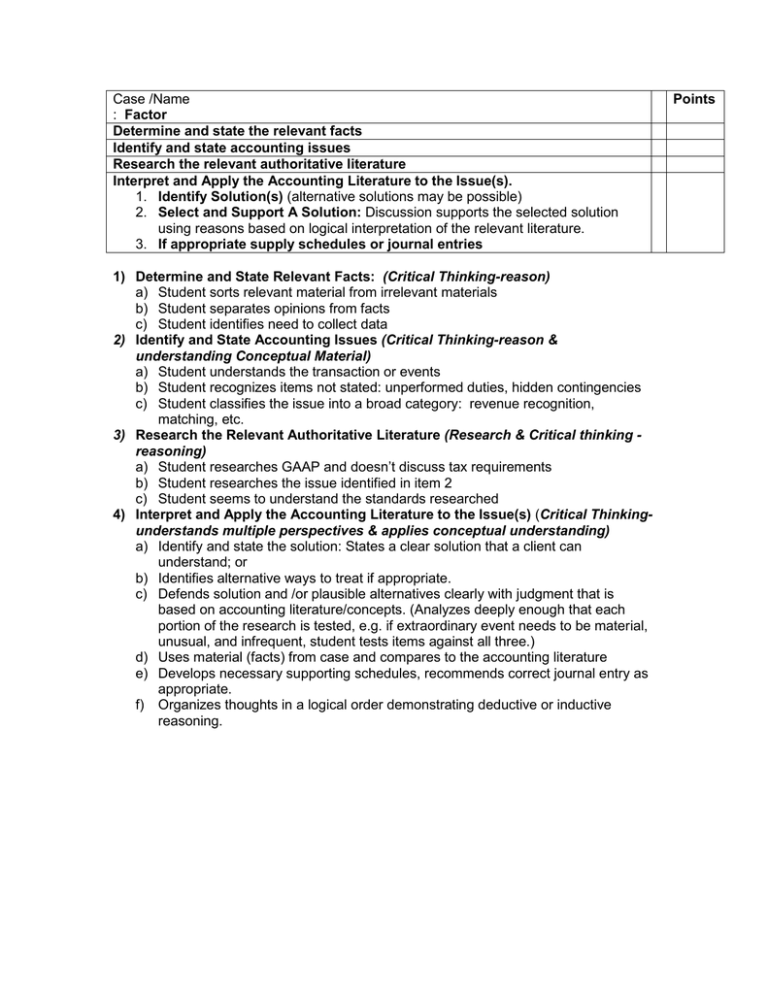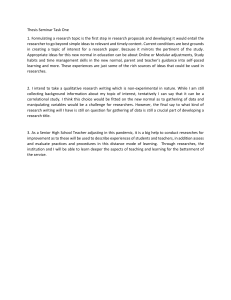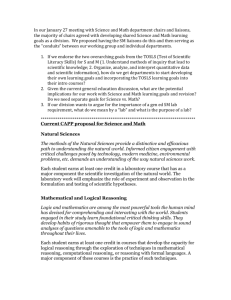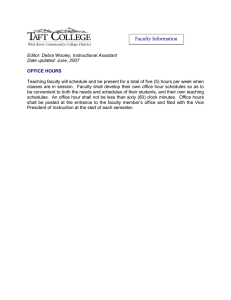Case /Name Points Factor
advertisement

Case /Name : Factor Determine and state the relevant facts Identify and state accounting issues Research the relevant authoritative literature Interpret and Apply the Accounting Literature to the Issue(s). 1. Identify Solution(s) (alternative solutions may be possible) 2. Select and Support A Solution: Discussion supports the selected solution using reasons based on logical interpretation of the relevant literature. 3. If appropriate supply schedules or journal entries 1) Determine and State Relevant Facts: (Critical Thinking-reason) a) Student sorts relevant material from irrelevant materials b) Student separates opinions from facts c) Student identifies need to collect data 2) Identify and State Accounting Issues (Critical Thinking-reason & understanding Conceptual Material) a) Student understands the transaction or events b) Student recognizes items not stated: unperformed duties, hidden contingencies c) Student classifies the issue into a broad category: revenue recognition, matching, etc. 3) Research the Relevant Authoritative Literature (Research & Critical thinking reasoning) a) Student researches GAAP and doesn’t discuss tax requirements b) Student researches the issue identified in item 2 c) Student seems to understand the standards researched 4) Interpret and Apply the Accounting Literature to the Issue(s) (Critical Thinkingunderstands multiple perspectives & applies conceptual understanding) a) Identify and state the solution: States a clear solution that a client can understand; or b) Identifies alternative ways to treat if appropriate. c) Defends solution and /or plausible alternatives clearly with judgment that is based on accounting literature/concepts. (Analyzes deeply enough that each portion of the research is tested, e.g. if extraordinary event needs to be material, unusual, and infrequent, student tests items against all three.) d) Uses material (facts) from case and compares to the accounting literature e) Develops necessary supporting schedules, recommends correct journal entry as appropriate. f) Organizes thoughts in a logical order demonstrating deductive or inductive reasoning. Points



